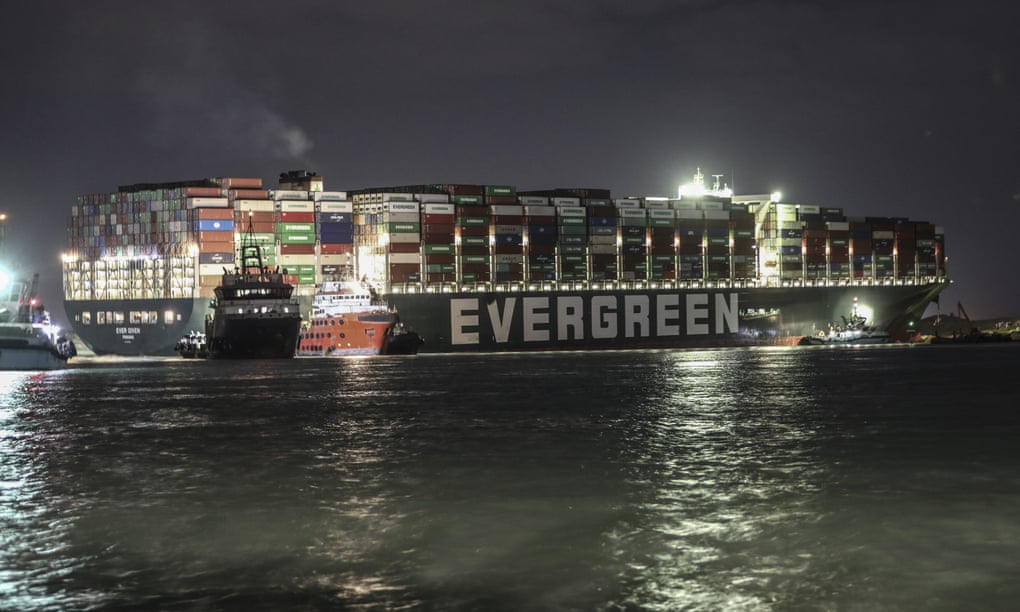Suez canal: Syria ‘rations’ fuel as efforts to free stuck ship fail
Syrian authorities say they have begun rationing fuel as the blockage of the Suez canal stretched into a sixth day, delaying vital shipments and worsening the country’s oil shortages.
Syria has been mired in civil war since 2011 and faces a severe economic crisis. It had already announced a more than 50% rise in the price of petrol in mid-March.
Global supply chains have been crippled since Tuesday when the giant container ship Ever Given ran aground and became wedged diagonally across the canal, blocking the crucial waterway in both directions.
In contrast to earlier claims that wind gusts were behind the stranding, the Suez Canal Authority chief, Osama Rabie, said on Saturday: “Strong winds and weather factors were not the main reasons for the ship’s grounding, there may have been technical or human errors.”
He hopes to refloat the vessel within days, but days of dredging, digging and tugboat pushing have so far been unsuccessful.
Rabie said the longer the skyscraper-sized Ever Given remained in place, the greater the possibility its load would need to be lightened using cranes, a strategy that experts have said would probably extend the salvage effort by weeks.
More than 300 vessels are now treading water at either end of the canal, which links the Mediterranean and the Red Sea.
Syria’s oil ministry said Saturday the trade route blockage had affected oil imports and slowed arrival of a ship carrying fuel and oil products from government ally Iran.
Pending a resolution, “the ministry is rationing the distribution of available oil products” to assure the continuity of essential services, such as bakeries and hospitals, the ministry statement said.
Oil minister Bassam Tomeh told state TV the cargo was due to arrive at the port of Banias on Friday. He added that if the blockage at the canal persisted, the ship may re-route around the southern tip of Africa, an expensive detour many companies have been forced to consider due to the blockage.
Before Syria’s war, the country enjoyed relative energy autonomy, but in the past decade an estimated $91.5bn in revenue has been lost from hydrocarbons, Syria’s oil minister said in February.
Pre-war production was 400,000 barrels a day, compared with just 24,000 in 2019.
Up to 80,000 barrels a day used to come from Kurdish areas outside government control, where more than 90% of the country’s reserves are located.
The Syrian government has blamed the economic crisis on western sanctions and on the knock-on effect of financial catastrophe in neighbouring Lebanon, which had long acted as Syria’s economic lifeline.

